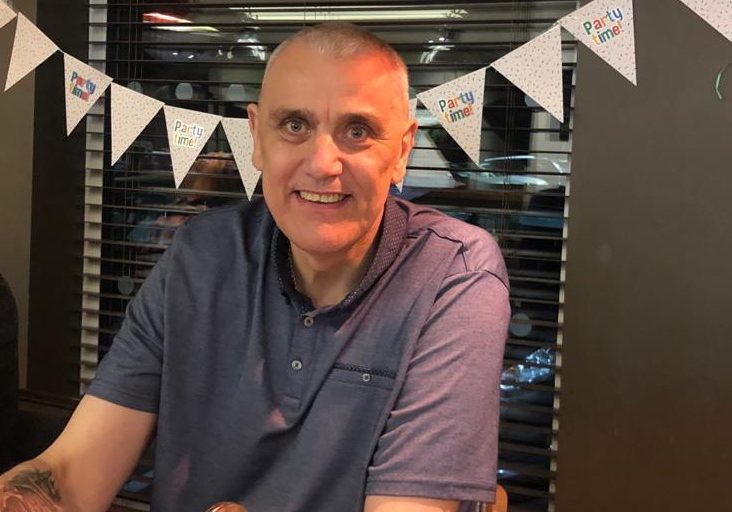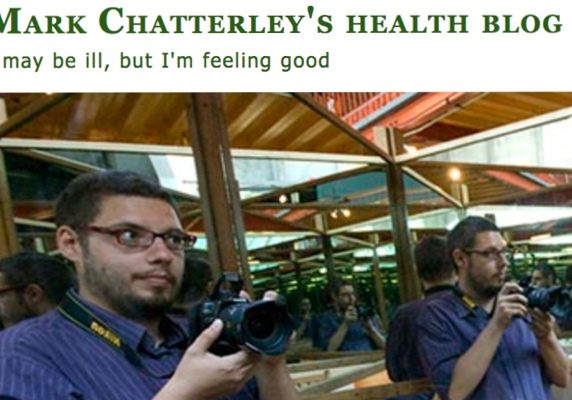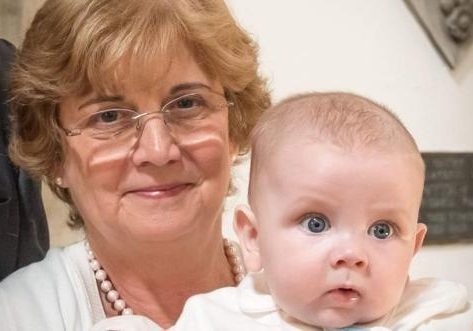Alan's transplant
Alan received his new liver in May 2005 at St. James's, Leeds. He was then 65 and has been doing well. This is a personal account by his wife, Judy.
"Alan was diagnosed with PSC in April 2004 at Blackburn Royal Infirmary, after a period of weight loss, itching and several rigour attacks, which started in late 2005. We were told that "PSC is not terminal" and he was prescribed Urso, which was the only available treatment since his bile duct was too 'kinky' to stent. We attended Blackburn until February 2005, during which period he suffered dreadful itching, fatigue and digestive problems. He was taking Urso (2000mg per day) and Rifampicin which did help his itching a little. He did not have Colitis or Crohn's for which we were thankful. We were referred to St. James' Leeds, and received an appointment within two weeks.
This was the start of an experience which showed the NHS at its best.
At this stage we did not realise how ill Alan was ~ we were just glad he didn't have cancer, which had been what we feared, and we thought we just had to learn to live with PSC "It would just progress slowly".
- March 9th 2005 - Outpatients at St. James'.
- April 6th 2005 - Admitted for 6 day tests: MRI, Colonoscopy, Endoscopy, ERCP, Barium Enema, Chest X-Ray, Ultrasound scan.
- May 4th 2005 - Outpatients for test results. Liver only functioning 20%. Transplant needed - alternative two years of deteriorating health.
- May 10th 2005 - Transplant Assessment: admitted for 5 days for talks with Consultants, Co-ordinator, Transplant Nurse. Further assessment to confirm fitness for surgery due to age (born January 1940).
- May 15th 2005 - Officially on transplant list. Requirement for new liver: blood group match and physical size.
- May 20th 2005 - Back to Outpatients to meet people already transplanted.
- May 2Ist 2005 - Call from Leeds. Liver available!
Luckily we were prepared; our bags had been packed for eight days just in case! We arrived at St. James' around 10.00pm. There was no need to rush as the liver had not been retrieved by the St. James' team at that time. We had to wait until it had been brought to Leeds, and checked over by the surgeon, before we would know if it was suitable.
Alan was admitted to the ward where I left him to rest. He was calm and matter of fact. I sat in the cafe and, looking through the window, saw the vehicle arrive containing (hopefully), Alan's new liver. I sat, whilst Alan dozed, waiting for the OK which came in the early hours. The operation was scheduled for 7:30am Sunday. We were calm and confident. The nurses were cheerful and supportive, and the surgeons were upbeat.
The risks had been explained as a matter of course, but there was no feeling of doom; only optimism. Alan was in the theatre from 7.30am to 2.00pm. The surgeons came to me after the operation, and were pleased at how well it had gone, especially in view of the fact of Alan’s age. I was then able to go into Intensive Care, to sit with him. His IC nurse had already explained how he would look, what pipes and tubes would be attached, so nothing came as a shock.
The one-to-one nursing in the IC unit was so efficient, but also very personal. All the time I was in there, I was never made to feel in the way, but encouraged to swab his mouth and tongue, wipe his face, and generally try to keep him calm and relaxed. It was a very traumatic period, but it was important for me to be a soothing presence.
By lunchtime the following day, Alan was back on the ward, which was incredible for someone his age. During the next 12 days we progressed slowly but surely, through the ups and downs of post transplant drama!
There were milestones every day.
First drink, first drain removed, catheters removed, physiotherapy (so vital), passing of wind (very important), volume of water being passed, bowels, liquid food absorption, all manner of medical procedures. By day three - sitting out of bed for two and a half hours, absolutely exhausting and painful but so necessary, to clear the lungs. (Some patients need a lot of encouragement to conquer the milestones, and the nurses have to be really firm!) Day four - a bath! Then walking back from the bathroom -- amazing!
I was lucky because I stayed for the whole time close to the hospital, and was in the ward from morning until night. It gave me confidence watching the nurses deal with various problems which cropped up; some patients could be quite difficult and aggressive due to the drugs which were necessary for pain management. Knowing that this could happen made it easier to cope. Alan's vision was distorted and he had vivid and troubled dreams, at times he was quite angry but didn't know why.
We made progress every day. We had to learn the names, functions and doses of medication until the sister was satisfied that we could manage on our own.
We came home on the 12th day, very apprehensively. We would have been happy to stay longer but the risk of infection is always there. I have to say I was paranoid. I sterilised everything, even door knobs. If I sniffed I wore a mask. I took his temperature every time he woke up. We laugh about this now but at the time I was fanatical. He had pain, but slept a lot and didn't eat much. The District Nurse came to take his stitches out and our GP came, mainly as moral support
Slowly but surely Alan began to walk short distances, he managed the stairs, but was very careful, and was afraid of anyone banging into him. As he grew in confidence he did more and more. We went back to the Clinic every two weeks, then four, then six and we were always seen by the same team of Consultants who had also attended him on the ward. Within ten weeks he was driving again and walking with his dog, and even cycling a little.
We never measured his achievements against anyone else's. It would be disheartening to compare with someone younger or more agile. We set our own goals. In May 2006 we went to Madeira for a week, and we swam, danced and walked. It was lovely.
We are now 19 months post transplant and I could write so much more, but suffice to say that having a Liver Transplant is a beginning - there are ups and downs to deal with, not least the balancing of the powerful medication so necessary to prevent rejections.
We are thankful for Alan's new liver, and are very sensitive to the fact that someone died to give him the chance. That fact in itself spurs us on to overcome whatever problems crop up."
Many thanks to Judy, who wrote this account 19 months after Alan's liver transplant.













